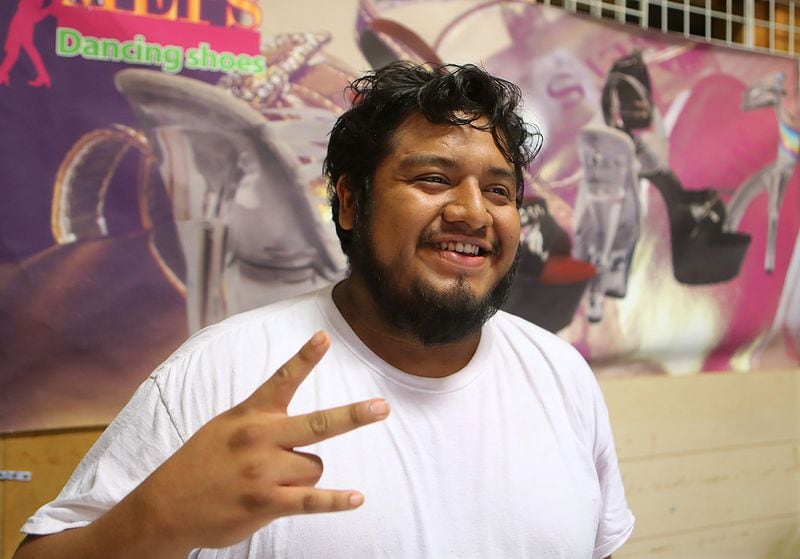The word “microaggression” took off in the last decade like a match to a haystack.
College students of color quickly embraced this way of describing day-to-day, often unintentional ethnic and racial slights to demand campus change. Critics called it political correctness run amok, while some said these slights are all in proponents’ heads.
For all of the bruising rhetoric, even microaggression research’s sharpest critics agree that day-to-day racial and ethnic indignities are real. Emory University professor Scott O. Lilienfeld thinks the concept is messy and should be renamed, but made clear in a recent peer-reviewed paper that no matter what these insults are called, that they take place is “undeniable.”
“The problem I have with microaggression concept is not whether they exist,” Lilienfeld told The Atlanta Journal-Constitution.
The term itself was coined in 1970 but didn’t gain traction until a 2007 journal article authored by a team led by Columbia University professor Derald Wing Sue gave the term new life. A microagression takes place when a white woman clutches her purse when she passes a black man, or when a colleague tells an Asian-American that she speaks English well.
Credit: ccompton@ajc.com
Credit: ccompton@ajc.com
This concept gained a prominent place in popular culture as non-whites found how powerfully it described the demoralization caused by these daily reminders that they’re second-class citizens, even when those who make them mean well. Research says that these indignities can be invisible to those who make them, and often reveal ugly, unconscious biases.
“It is similar to death by a thousand cuts,” Sue told the AJC.
Critics do see weaknesses in the concept. For instance, Lilienfeld is concerned that the term is so broad that a statement such as “America is a land of opportunity” can be classified a microaggressions. This pronouncement may seem like a cruel joke to those who face discrimination and harassment, but the reasoning behind counting it as a microaggression appears weak, he said.
A growing body of evidence suggests that microaggressions can cause significant harm. They may even make you sick. Researchers have found that reports of these indignities correlate with declines in mental and physical healtht, and they plan to do more work to test whether microaggressions are the cause.
Wing is researching ways to help the victims of these slights cope. For now, his advice is to avoid getting defensive when the offenders mean well.
“You thank their conscious intent, but undermine the hidden perception that they have,” Wing said.
Note: Commenting for this article is being moderated by AJC editors.
---------------------------------
Microaggression examples
Racial microaggressions are brief and commonplace indignities, intentional or unintentional. These examples are from “Racial microaggressions in everyday life,” American Psychologist, by Derald Wing Sue and six others.
Alien in your own land
When Asian Americans and Latino Americans are assumed to be foreign-born
You say: “Where are you from?”
You mean: “You are not an American.”
You say: “You speak good English.”
You mean: “You are a foreigner.”
Ascription of intelligence
Assigning intelligence to a person of color on the basis of their race.
You say: “You are a credit to your race.”
You mean: “People of color are generally not as intelligent as white people.”
You say: “You are so articulate.”
You mean: “It is unusual for someone of your race to be intelligent.”
You ask: An Asian person to help with a math or science problem.
You mean: All Asians are talented at math and science.
Color blindness
Statements that indicate that a white person does not want to acknowledge race.
You say: “When I look at you, I don’t see color.”
You are: Denying a person of color’s racial or ethnic experiences.
You say: “America is a melting pot.”
You mean: “Assimilate to the dominant culture.”
You say: “There is only one race, the human race."
You are: Denying the individual as a racial or cultural being.
Criminality/assumption of criminal status
A person of color is presumed to be dangerous, criminal or deviant.
Action: A white man or woman clutching her purse or checking his wallet as a black man or Latino approaches.
Meaning: “You are a criminal.”
Action: A store owner following a customer of color around the store.
Meaning: “You are going to steal, you are poor, you don’t belong.”
Action: A white person sees that a person of color is on the elevator, so he waits for the next elevator.
Meaning: “You are dangerous.”
Denial of individual racism
A statement made when whites deny their racial biases
You say: “I’m not racist. I have several black friends.”
You mean: “I am immune to racism because I have friends of color.”
You say: “As a woman, I know what you go through as a minority.”
You mean: “Your racial oppression is no different than my gender oppression. I can’t be a racist. I’m like you.”
------------------------------
Sources
- Telephone interview, Derald Wing Sue, professor of psychology and education, Columbia University, April 18, 2017
- Telephone interview, Scott O. Lilienfeld, professor of psychology, Emory University, May 4, 2017
- American Psychologist, "Racial Microaggressions in Everyday Life," May-June 2007, http://world-trust.org/wp-content/uploads/2011/05/7-Racial-Microagressions-in-Everyday-Life.pdf
- Perspectives on Psychological Science, "Microaggressions: Strong Claims, Inadequate Evidence," January 2017, http://journals.sagepub.com/doi/full/10.1177/1745691616659391
- Perspectives on Psychological Science, "Microaggressions and 'Evidence': Empirical or Experiential Reality?" January 2017, http://journals.sagepub.com/doi/full/10.1177/1745691616664437
- Perspectives on Psychological Science, "Microaggressions and Daily Experience: Depicting Life as It Is Lived," January 2017, http://journals.sagepub.com/doi/full/10.1177/1745691616664505
- Perspectives on Psychological Science, "The Unwisest Idea on Campus: Commentary on Lilienfeld (2017)," January 2017, http://journals.sagepub.com/doi/full/10.1177/1745691616667050
- Perspectives on Psychological Science, "Through a Glass, Darkly: Microaggressions and Psychological Science," January 2017, http://journals.sagepub.com/doi/full/10.1177/1745691616669098
- American Psychological Association, "Stress in America: The impact of discrimination," 2016. https://www.apa.org/news/press/releases/stress/2015/impact-of-discrimination.pdf







